- Details
- Arctic Competition – GET INSPIRED!
- New lessons-new topics
- Have a joyful Holiday Time!
1. Arctic Competition – GET INSPIRED!

Would you like to experience real northern, scientific adventure? Liliana Skrycka-Kuźniewska from Poland and Stelios Anastassopoulos from Greece were amongst winners of the I edition Arctic Competition, and in August 2017 they visited Faroe Islands. How to prepare, where to draw inspiration from, what students learned, what are the memories of their expedition? Find out during the online lesson on 13th December, 08:00 UTC!
Enrol now:
https://edu-arctic.eu/program/lessons/226 and ... get inspired!
If you want to experience the Arctic adventure, but do not believe it is possible, read a travelogue from Arctic Expedition to Iceland by Gulia Bagnara, teacher from Italy, who supervised one of the winning projects in edition 2017. If you look for inspiration on the topics, you may also read an article on the competition and the expedition to the Faroe Islands. Piotr Malesa, geography teacher at the Lodz University of Technology School Complex and his student Jan Makowski spent 10 days in this beautiful country, and in their article they describe how to get the main prize and what to expect on the expedition.
2. New lessons – new topics
Winter break is approaching, but we still have lots of lessons to offer this year. New topics are here!
Get inspired by Arctic competition winners, check, how Ptarmigans are hunted in the Northern Norway, find out what happens when living is toxic, learn all about tsunami risk in the North Atlantic Ocean, swim along Arctic rivers, listen to the amazing story of 130.000 years of climate change in Borðoyavík, Faroe Islands.
We’re also very glad to offer you guest webinars provided by befriended ERIS project, dedicated to:
on 12 DEC (Tuesday): Earthquakes, VENUS, Earth’s magnetic field, and on 18 DEC (Monday) Earth’s magnetic field, Digital maps and geographical coordinates.
If you speak or learn Italian – learn all about the weirdest Arctic animals (14 DEC) – Gli animali più strani dell'Artico.
3. Have a joyful Holiday Time!
Watch our EDU-ARCTIC Christmas VIDEO! We hope you’ll enjoy it and – most of all – that all the good wishes will come true!

- Details
- Your ninth online newsletter
- Arctic Competition – 2nd edition is on!
- New lessons and new rules of enrolment
- What’s new on Polarpedia
- EDUCATORS’ FORUM in Oslo
- Spreading the word about EDU-ARCTIC: Arctic Circle and Bucarest
1. Your ninth online newsletter
Dear teachers, they say that November is the most depressing month of the year. And yet, thanks to you, we remain high spirited and we hope you are, too. We have a lot to announce you: new ideas, new topics, new challenges.
2. Arctic Competition – 2nd edition is on!
Would you like to experience real northern, scientific adventure? Now you have a chance! The impatiently awaited second edition of Arctic Competition has begun. This time you have a chance to win a trip to NIBIO Research station Svanhovd or Polish Polar Station Hornsund on Svalbard. Please read NEW RULES carefully. Questions? Check our FAQ or contact us!

3. New lessons and new rules of enrolment
After lots of signals from EDU-ARCTIC teachers and long discussions we introduced some modifications in enrolment system in order to maximize usability of online lessons. Now you may be enrolled for up to 3 online lessons at the same time. This means, if you've enrolled for 3 lessons and want to enrol for another one, you may either unenrol from at least 1 lesson or wait until at least one of them is completed. Also, in case of lessons in national languages, other than English - if you enrol for such lesson which is not provided in your native language, you will be enlisted on stand-by list automatically. You will be able to participate if there are available places, and you will receive a link about 15 minutes before the lesson. Questions? Remarks? Please This email address is being protected from spambots. You need JavaScript enabled to view it.!
In November learn all about mass balance of glaciers, lidars and the rock cycle, travel with Belgian Antarctic Expedition, visit Sami – the reindeer people, see for yourself that what happens in the Arctic doesn’t stay in the Arctic.
In December meet brown bears and find out if they believe in gender steretypes, explore water resources of the Arctic, check if you can be a tourist in the Arctic and debunk some myths regarding climate change - with science. You can also visit Arctic, the people’s land, find out why Lidars are so important for human life, take a journey to Iceland – land of air and water, If you wish to begin your adventure with Monitoring system – don’t miss introductory webinar full of interesting facts and hot tips!
If the lesson is full, please still enroll to show you’re interested in a topic, which is a hint for us to repeat it.
Need help with enrolment? Check out our short video tutorial. Watch video explaining how to connect to the lesson. Remember, you can get an overview of the online lessons that are already available by having a look at the calendar of upcoming lessons. The time of online lessons is always posted in UTC (GMT+0), so make sure to convert it to the right time zone, if necessary!
4. What’s new on Polarpedia
Have you checked Polarpedia lately? Learn why Ada Lovelace is a powerful icon for women scientists, is Lazarus taxon a term from Bible and find out if Apex predator has to be afraid of any other creature. Thanks to our fantastic teachers who offered translations we have more and more terms in national languages. New national sections - Croatian and German – appeared since last month. Would you like to contribute? This email address is being protected from spambots. You need JavaScript enabled to view it.! Also, if you have any educational materials related to particular terms – worksheets, syllabus etc. – please This email address is being protected from spambots. You need JavaScript enabled to view it. and we’ll share it on Polarpedia giving your credits!
5. EDUCATORS’ FORUM in Oslo
16 teachers from 13 countries shared their experience in use of EDU-ARCTIC in their schools practice, mastered their use of project tools and became genuinely engaged as project ambassadors. Also, 2 winners of Arctic Competition 2017 presented their travelogue - EDU-ARCTIC Faroe expedition diary 2017, which was definitely hugely inspiring and motivating for all participants!

6. Spreading the word about EDU-ARCTIC: Arctic Circle and Bucarest
Arctic Circle is the largest annual international gathering in the Arctic, so naturally – we couldn’t possibly miss it. We had to be in Reykjavík!
This annual event is attended by more than 2000 participants from 50 countries: heads of states and governments, officials, experts, scientists, entrepreneurs, indigenous representatives, environmentalists, students from the growing international community of partners and participants interested in the future of the Arctic. During breakout session ‘The Arctic and Polar Research as a Vehicle for Stem & Environmental Education’ as well as at the exhibition ’Poland and the Arctic. From long tradition to modern studies of the Arctic’ EDU-ARCTIC was presented.
Another major event we participated in was not as numerous, but no less interesting. National Conference for STEM teachers and experts in education field in Romania (Bucarest) brought together international and local experts from education and science, discussing and experimenting with STEM's innovative approaches. It was a pleasure to organize hands-on workshop for Romanian teachers and connect online with our team on Spitsbergen!

- Details
- Your eighth online newsletter
- Warsaw, Guyancourt, Oslo: EDUCATORS’ FORA
- Check out new upcoming lessons
- New languages on Polarpedia
- 1000 teachers challenge
- EDU-ARCTIC on Arctic Circle
1. Your eighth online newsletter
Dear teachers, we continue our project activities in this new school year. Autumn is here, and surely you have a lot to cope with in upcoming weeks. We hope you will find our tools useful and helpful in your school practice. We have plenty to offer!
2. Warsaw, Guyancourt, Oslo: EDUCATORS’ FORA
Two workshops (in France and Poland) are completed, one (in Norway) is still ahead (it will be held in Oslo 18th October).
It was a great pleasure to host over 50 teachers from 20 countries. We had practical sessions allowing to get familiar with project tools, we connected with polar stations, but most importantly we had an opportunity to meet fantastic members of EDU-ARCTIC community in person. Learning how EDU-ARCTIC is included into school practice and extracurricular activities was priceless.
Also, we got an amazing feedback on project activities. Thank you for all new ideas and the amazing follow-up – EDU-ARCTIC teachers are already working as project ambassadors, organizing individual, local workshops and disseminating project during various STEM-related events. Thank you for being an inspiration! Looking forward to meeting more of you in Oslo!

3. Check out new upcoming lessons
Feel as if you were a part of Belgian Antarctic Expedition, find out how satellite photos are made, meet all adaptations that allow Arctic mammals to survive, learn all about the rock cycle, and dangers of plastic in the Arctic, visit the Arctic - people’s land, watch the magic spectacle of northern lights and find out if we’re experiencing the last glaciation ever. If there are no places left for the lesson, please still enrol to be on a standby list. We are quite often offering places to teachers from the standby lists!
Lately we proposed a lesson in Italian, and now we’re inviting all those who speak Greek to a very interesting lecture about Earthquakes.
Check out our short videos on how to enrol and how to connect for a lesson.
Remember, You can get an overview of the online lessons that are already available by having a look at the calendar of upcoming lessons. The time of online lessons is always posted in UTC (GMT+0), so make sure to convert it to the right time zone, if necessary!

4. New languages on Polarpedia
Polarpedia is constantly growing. Learn what is protolith, why is mattak healthy and why Batagaika crater is called ‘doorway to hell’.
We also have new language versions: Russian, Albanian and Serbian.
Would you like to contribute? Contact us! Remember, you gain 20 EDU-POINTS for each translated term you provide!
5. 1000 teachers challenge
Amazing news! There are already 600 (!) teachers in our EDU-ARCTIC community. 39 countries are on board. It sure is a reason to celebrate, but more importantly - to ... make another challenge. This time our goal is really ambitious. 1000 registered teachers by the end of this year. Hold tight, because we prepared awesome and unique EDU-ARCTIC backpacks for number 1000 and 4 other new teachers from number 601 to 999. Fingers crossed, everybody! Let the challenge begin!

6. EDU-ARCTIC on Arctic Circle
From 13 to 15th October we’ll be presenting EDU-ARCTIC project on the annual Arctic Circle Assembly. It is the largest annual international gathering on the Arctic, attended by more than 2000 participants from 50 countries. It is attended by heads of states and governments, ministers, members of parliaments, officials, experts, scientists, entrepreneurs, business leaders, indigenous representatives, environmentalists, students, activists and others from the growing international community of partners and participants interested in the future of the Arctic. We are also organizing a special session dedicated to using the Arctic and polar research for education. Keep fingers crossed!
- Details
- Your seventh online newsletter
- New lessons in September
- Check out what’s new on project portal
- Our Youtube channel: online lessons recordings and more
- New languages on Polarpedia
- Arctic Expedition: northern adventure of Arctic Competition winners
- Remember “ 500 teachers challenge”?
- EDU-ARCTIC - spreading the word in Ireland and Bulgaria
1. Your seventh online newsletter
Dear teachers, this is the first EDU-ARCTIC newsletter in this schoolyear. We hope you’re full of energy and new ideas. We are! We have a lot to tell you. Check out, what we have to offer!
2. New lessons in September
Discover if brown bears believe in gender stereotypes, learn how science debunks climate myths. Meet the rock cycle and flying penguins. Find out all about mass balance of glaciers, explore permafrost and periglacial processes.
And if you’re Italian – or your students are learning Italian - we encourage you to meet the weirdest Arctic animals.
Need help with enrolment? Check out our short video tutorial.
Remember, you can get an overview of the online lessons that are already available by having a look at the calendar of upcoming lessons. The time of online lessons is always posted in UTC (GMT+0), so make sure to convert it to the right time zone, if necessary!

3. Check out what’s new on project portal
Our portal is a crucial tool and we’re always trying to make it better, more interesting and user friendly. During summer break we worked on some improvements. Check out our new EDU-FORUM: now you can add comments and likes, and create your own topics.
We also added VIDEO section – check what’s new on our Youtube channel. We recommend our step-by-step intuitive video tutorials: how to register new account, how to enroll for online lessons, how to use your profile section.
We hope you’ll like it. Add a comment on EDU-FORUM!
4. Our Youtube channel: online lessons recordings and more
If you still haven’t subscribed to our Youtube channel , it’s about time! We have now more than 50 recordings of our online lessons in English, Polish, French, Danish, Faroese and Romanian. Watch and comment! There are also introductory webinars, tutorials and intros.
5. New languages on Polarpedia
Have you checked Polarpedia lately? We have more than 200 terms … and new languages! More and more expressions are available in Italian, Greek and Bulgarian, also thanks to our fantastic teachers who offered translations. Would you like to contribute? Contact us! Now, you gain points in EDU-GAME for each translation into national language!
6. Arctic Expedition: northern adventure of Arctic Competition winners
It was summer full of adventures. First, competition finalists visited Institute of Geophysics Polish Academy of Sciences and its observatories. Then, the long awaited and well deserved award has come: in August our Arctic Competition winners went to the North. 3 teams spent almost two weeks in Faroe Islands, the other three had an opportunity to visit Iceland.
With the most warm welcome, intense fieldwork, incredibly beautiful views and lots of STEM knowledge our best European team had undoubtedly great time.
Would you like to experience real northern, scientific adventure? Get ready for the second edition of Arctic Competition!
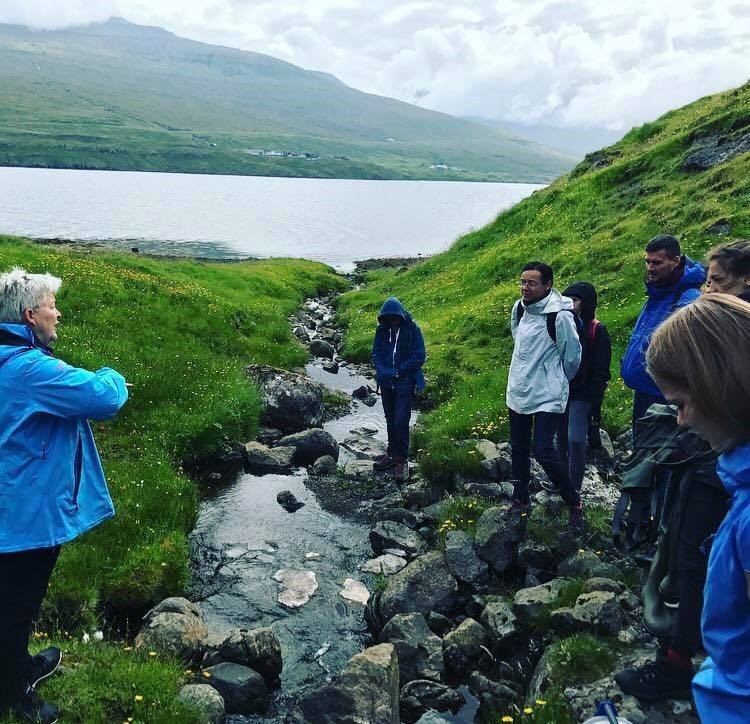

7. Remember “ 500 teachers challenge”?
We’re proud to announce that we’ve accomplished “500 teachers” challenge. In fact, we have now more than 550 teachers from 38 countries on board. As promised, we’re sending Arctic jigsaws to 5 teachers registered between number 400 and 500. Special congratulations to Sara from Italy, our five hundredth teacher!
8. EDU-ARCTIC spreading the word in Ireland and Bulgaria
As always, we’re spreading the word about EDU-ARCTIC project, but also learning a lot about STEM education all over Europe. EDU-ARCTIC project was presented in Dublin, Ireland, during ESERA2017 conference, titled: Research, practice and collaboration in science education.
In September we’re participating in 8th International Conference "EDUCATION, RESEARCH AND DEVELOPMENT" in Bulgaria. Keep fingers crossed!
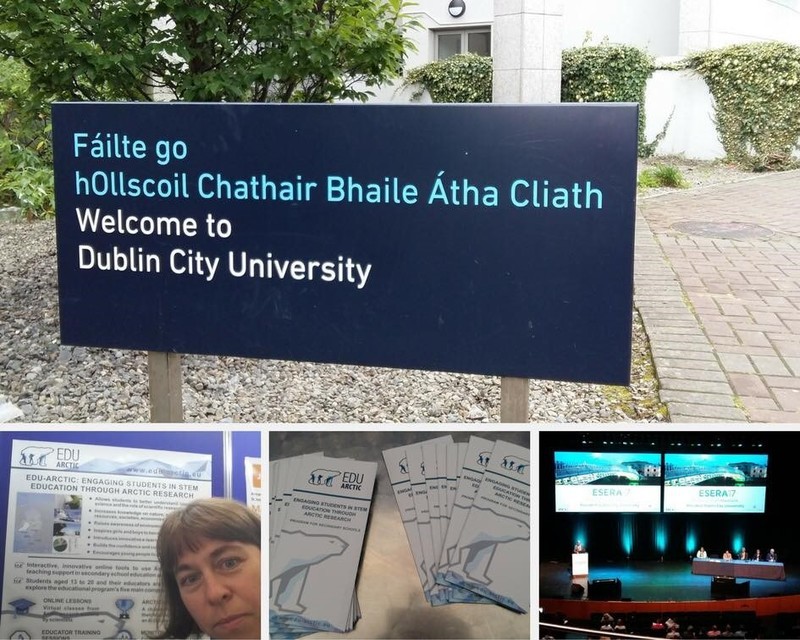
- Details
Newsletter n°6, 13 June 2017
- Your sixth online newsletter
- A look back and a look ahead – we managed to do a lot together!
- Check out new upcoming lessons
- EDU-ARCTIC on Scientix
- New languages on Polarpedia
- Enjoy the summer break!
1. Your sixth online newsletter
Dear teachers, this is the last EDU-ARCTIC newsletter in this schoolyear. We accomplished a lot, we wish to thank you for your effort and engagement. It is a great pleasure to have you on board.
2. A look back and a look ahead – we managed to do a lot together!
The results so far are impressive. More than 450 teachers from 36 countries form the EDU-ARCTIC family. We conducted over 100 online lessons in English, Polish, Faroese, Danish and Romanian, with more than 2000 participants enrolled. Almost 400 meteorological and phenological observations were registered. About 120 Polarpedia terms are available. Your engagement made it all possible. We really appreciate it. You inspire us!
We completed first edition of Arctic Competition, and our 6 winning teams are about to visit Iceland and Faroe Islands. We’re looking forward to meeting many of you during EDUCATORS’ FORA – we have over 100 applications!
And remember, there are still jigsaws to win in our 500 PARTICIPANTS CHALLENGE!

3. Check out new upcoming lessons
Discover how the Arctic can save us from global catastrophe, learn how brown bears are studied. And if your students are Francophones – or learning French – we encourage you to meet VENUS, and find out what polar lows are.
Remember, You can get an overview of the online lessons that are already available by having a look at the calendar of upcoming lessons. The time of online lessons is always posted in UTC (GMT+0), so make sure to convert it to the right time zone, if necessary!

4. EDU-ARCTIC on Scientix
If you know someone who hasn’t participated in Introductory webinar for teachers, here’s a good opportunity: we are very happy to be able to present our project on Scientix Webinar “The Arctic and Polar Research for Education (EDU-ARCTIC) programme for secondary schools”. The webinar will take place in the Scientix online meeting room on Wednesday 21 June 2017 at 16:00 Central European Summer Time. Register here
5. New languages on Polarpedia
Have you checked Polarpedia lately? We have new terms and …new languages! First Romanian expressions are already there, and we are very happy to announce that we’re planning to add terms in Greek, too, thanks to contribution of our great Greek teachers. Would you like to contribute? Contact us!
6. Enjoy the summer break!
The end of schoolyear is approaching. It was extremely busy, but very satisfying – hopefully, for you as well. We wish you the best summer vacation – it is well deserved. Don’t forget about EDU-ARCTIC, we’re planning lots of activities for the next schoolyear. See you in Autumn!

- Details
Content
Newsletter n°5, 17 May 2017
- Your fifth online newsletter
- And the winners are …congratulations to 6 awesome teams!
- Join fellow EDU-ARCTIC teachers for an inspiring workshop
- 400 teachers on board… and counting!
- Check out new upcoming lessons
- EDU-ARCTIC in Brussels – new teachers, new countries on board
- Spreading the word about EDU-ARCTIC
1. Your fifth online newsletter
This is the fifth online newsletter that you get as a part of the EDU-ARCTIC family, dedicated to keeping you informed about the latest developments and key happenings within the EDU-ARCTIC project, as well as to remind you about the very useful educational tools that are available to you as educators.
2. And the winners are … congratulations to 6 awesome teams!
More than 40 school teams from Europe. 3 stages, fierce competition. But also adventure, fun, inspiration for exploring knowledge, interesting challenge. The ideas for research or innovation projects were very diverse: from climate change studies and their impact on transport in the region, glacial measurements, through the cultivation of non-leafy vegetables, to lichen and seal studies. Students prepared essays, films, posters. The final twelve met "virtually" with representatives of the project consortium from Poland, France, Norway, Iceland and the Faroe Islands, and finally 6 winning teams were selected.
Wojciech constructed a device to investigate the thermal conductivity of various materials, seeking new solutions for the North. Julia invented a useful backpack tent, protecting against the harsh weather conditions of the Arctic. Aleksandra wants to study the water blooms in the Arctic. Vassiliki plans to observe the behavior of sheep, Jan can’t wait to investigate human immunity in the North, and Angelika wants to use her photographic passion and prepare an interactive children's book.
This August, students (age 14-19) and teachers from Poland, Greece and Italy are going to visit Polar research stations in the Faroe Islands (they will have a chance to see breathtaking views, unique ecosystems and explore the geological structures, they’re looking forward to see fjords, whales, geothermal power plan and much more.
Prepare for next year’s edition – it’s an opportunity for an extraordinary scientific - Arctic adventure!

3. Join fellow EDU-ARCTIC teachers for an inspiring workshop!
We’re looking forward to meet you in Autumn! We are extending the deadline for enrollment in teacher workshops in France, 21-22 September (for teachers from western and southern Europe and Norway, 18 October (for teachers from northern Europe).
Submit application form on EDU-ARCTIC portal and be inspired in a group of fellow teachers coming from different countries and different school cultures. We will listen, discuss and be hands-on on how we can use the EDU-ARCTIC program in our own teaching. Coming from different backgrounds (mixing teachers and scientists), we will exchange valuable views. For example on how we can bring a fresh approach to motivate our 13-20 years old students to pursue further education in science, technology, engineering and mathematics (STEM).
Registration for workshop in Poland, 23-24 September (for teachers from central and eastern Europe) is now closed. However, if you are a teacher from Czech, Latvia, Slovakia or Slovenia and wish to participate, contact us on This email address is being protected from spambots. You need JavaScript enabled to view it.. You have a chance to enrol till 5th of June

4. 400 teachers on board … and counting!
In May we reached our new record – 400 active teachers on board! Our new goal is 500 active users (teachers) till the end of this school year. Help us to reach it by spreading the word on EDU-ARCTIC among your STEM colleagues.
5. Check out our new upcoming lessons!
There are still some places available for our new lessons in May and June. Meet ‘flying penguins’, get a closer look at satellite photos, dive deep into DNA, visit The Arctic-people’s land and listen to the fascinating story of Earth. We encourage you to sign in!
Remember, You can get an overview of the online lessons that are already available by having a look at the calendar of upcoming lessons. The time of online lessons is always posted in UTC (GMT+0), so make sure to convert it to the right time zone, if necessary!

6. EDU-ARCTIC in Brussels – new teachers, new countries on board
On Saturday 6th of May, we took opportunity to present EDU-ARCTIC to participants of the 14th Science Projects Workshop in the Future Classroom Lab, organised by Scientix and Next-Lab, which took place in Brussels in European Schoolnet office.
61 participants from over 23 countries joined the event. Teachers had a chance to get familiar with 5 EDU-ARCTIC components. We welcomed 17 new teachers, who registered into the portal, from Bulgaria, Croatia, Finland, Greece, Hungary, Latvia, Romania, Serbia, Slovenia, Spain and Turkey. We are excited to have therefore 2 new countries on board: Finland and Turkey.
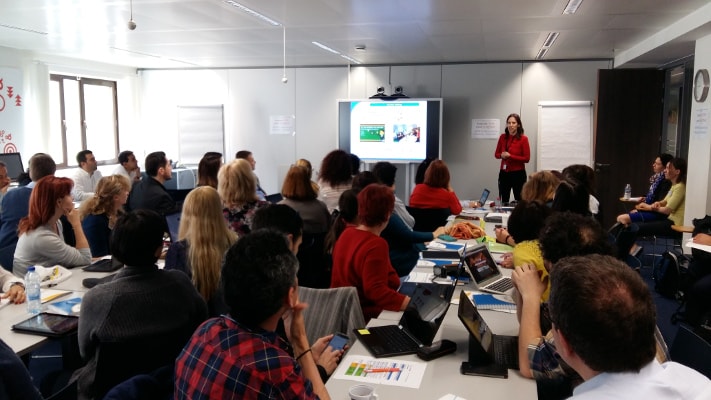
7. Spreading the word about EDU-ARCTIC
We hope that as members of the EDU-ARCTIC community, you will help us spread the word about the project! We have many promotional materials, including videos available in eight languages on the EDU-ARCTIC YouTube channel plus promotional brochures in eight languages available on our website.
And don’t forget to visit our website for the latest news, follow our Facebook page, Twitter feed and Instagram account. We look forward to seeing many of you at the upcoming online lessons!
- Details
Content
Newsletter n°4, 11 April 2017
1. Your fourth online newsletter
2. EDU-ARCTIC Teachers Fora
3. Polarpedia – plenty of terms and new languages
4. Check out new upcoming lessons
5. EDU-ARCTIC in Italy: 2017 PEI Conference
6. Spreading the word about EDU-ARCTIC
7. …and Happy Easter to you all!
1. Your fourth online newsletter
This is the fourth online newsletter that you get as a part of the EDU-ARCTIC family, dedicated to keeping you informed about the latest developments and key happenings within the EDU-ARCTIC project, as well as to remind you about the very useful educational tools that are available to you as educators.
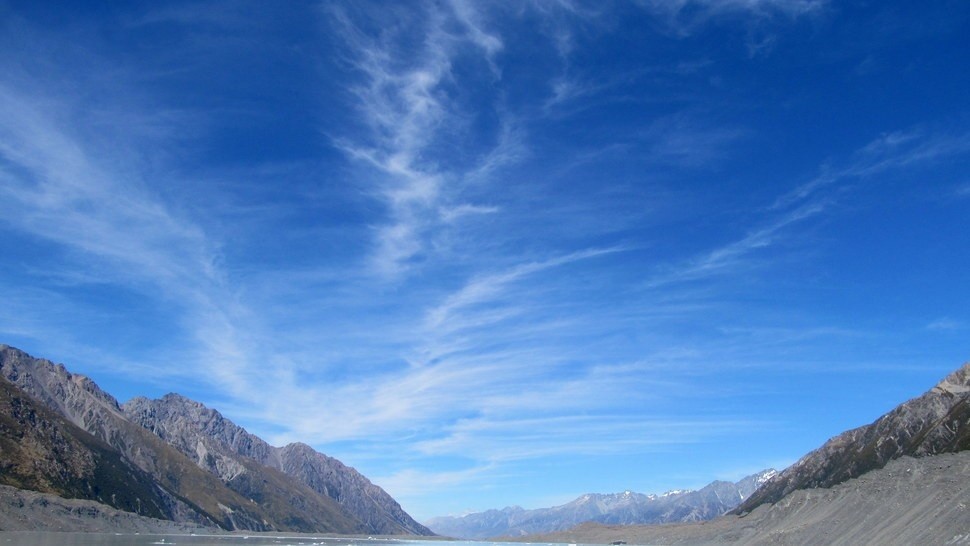
2. Polarpedia– plenty of terms and new languages
Have you checked Polarpedia lately? For now we have almost 100 (!) English/Polish terms related to the Arctic, divided into 9 categories: Ice & Snow, Climate & Weather, People & Society, Atmosphere, Animals & Plants, Seas & Oceans, Land & Geology, Space and Career Resources. Translations into French and Danish are arriving. You can use it as a source of unique knowledge and a glossary for lessons.
Also, we decided to add a Romanian version of the Polarpedia, as Romanian teachers are the second biggest group taking advantage of EDU-ARCTIC’s educational resources. We hope it will be helpful and encourage you to check the translations and comment.
3. EDU-ARCTIC Teachers Fora
We are very happy to announce that our highly anticipated Teachers Fora will take place in early Autumn 2017. These workshops will be dedicated to teachers from different parts of Europe (teachers form western and southern Europe will meet in France (21-22 September), from central and eastern Europe in Poland (23-24. September), and from northern Europe in Norway (18. October). You can submit your application form on the EDU-ARCTIC portal by May 15, 2017.
Meet our scientists, get familiar with the portal, polar research, and Earth sciences issues, and become a local leader/ambassador for the project! We also encourage you to show during the Forum how you use EDU-ARCTIC tools in your classroom.
If you have a high score in the EDU-GAME, you’re increasing your chance to receive a travel grant, so it’s certainly worth being active!

4. Check out our new upcoming lessons!
There are still some places available for our new lessons in April. Do you want to identify cloud types, find out if nature can adapt to or is doomed to die, participate in geological field observations, or observe models showing how climate changed for the last five decades? Then we encourage you to sign in.
Remember, You can get an overview of the online lessons that are already available by having a look at the calendar of upcoming lessons. The time of online lessons is always posted in UTC (GMT+0), so make sure to convert it to the right time zone if necessary!
5. EDU-ARCTIC in Italy: 2017 PEI Conference
Representatives from the EDU-ARCTIC team is participating in 3rd International Workshop of Polar Educators (PEI) (11-14 April) in Rovereto, Italy. The workshop aims to gather the international community of polar educators together with scientists in an intensive 4-day workshop to share the best research and education practices in the field of polar science. Keep your fingers crossed!
6. Spreading the word about EDU-ARCTIC
We hope that as members of the EDU-ARCTIC community, you will help us spread the word about the project! We have many promotional materials, including videos available in eight languages on the EDU-ARCTIC YouTube channel plus promotional brochures in eight languages available on our website.
And don’t forget to visit our website for the latest news, follow our Facebook page, Twitter and Instagram account. We also have an EDU-ARCTIC profile on LinkedIn, which you are welcome and encouraged to follow, as it can help you to make contact with other professionals in STEM education.
We look forward to seeing many of you at the upcoming online lessons!
7. Dear EDU-ARCTIC friends, Happy Easter, and have a nice, well deserved Spring Break!
- Details
Content
Newsletter n°3, 7 March 2017
1. Your third online newsletter
2. Monitoring system is on – add your observations!
3. Check out new upcoming lessons
4. Arctic competition – next stage begins!
5. EDU-ARCTIC in Spain: straight from INTED2017 conference
6. Spreading the word about EDU-ARCTIC
1. Your third online newsletter
This is the third online newsletter that you get as a part of the EDU-ARCTIC family, dedicated to keeping you informed about the latest developments and key happenings within the EDU-ARCTIC project, as well as to remind you about the very useful educational tools that are available to you as educators.
2. Monitoring system is on-add your observations!
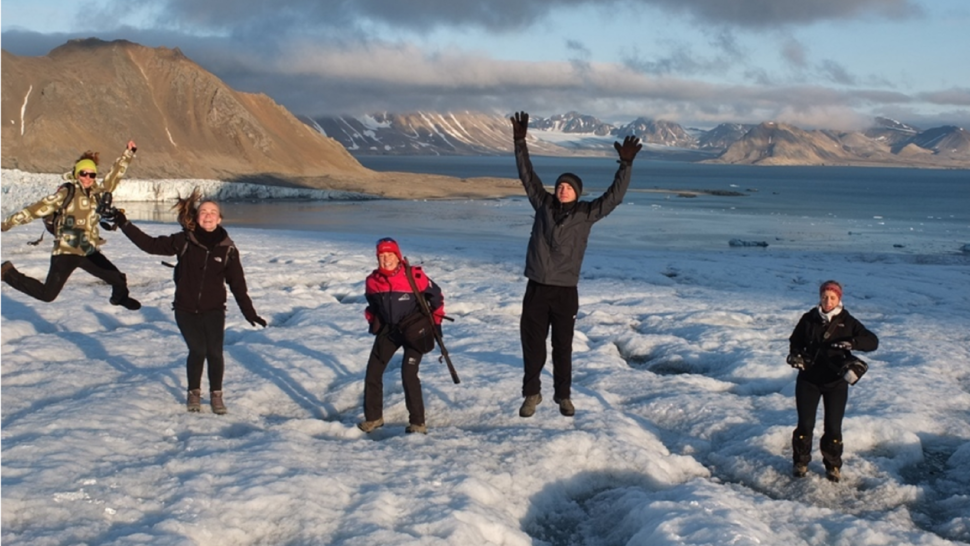
Check out our Manual for Teachers, a useful field guide for both teachers and students that describes in detail all the technical guidelines and parameters to be observed. Everyone is also invited to take part in the lesson dedicated to environmental monitoring on 20th March, during which participants will gain more insight into monitoring the environment around them.
For those who participate in EDU-GAME, please note that there are extra points for being a part of the Monitoring Web!
We invite you to become a part of our Monitoring Web, which will help you learn more about the environment around you! The observations the school students make will be reported to the Monitoring System every Monday. Some meteorological parameters in our monitoring system are reported as actual values: air temperature, cloud cover, precipitation, visibility reduction and wind force. We also ask you to report on meteorological and hydrological phenomena that occurred within the previous week such as lightning, noteworthy atmospheric phenomena, ice on lakes and rivers, and snow cover.
We also help you become engaged in biological field observations, including observing plants (birch, lilac, bilberry, rosebay willowherb, rowan), insects (bumblebee, mosquito, ant, common brimstone, European peacock butterfly) and birds (Arctic tern, common cuckoo, white wagtail, crane). Due to the large variation in environments and habitats throughout the European continent, some of the parameters and variables can be difficult to observe (if you do not observe a particular species in your surroundings, you may just leave the box empty)

3. Check out our new upcoming lessons!
There are still some places available for our new lessons in March. If you want to see what it’s like to study Earth form space, find out what LIDAR is used for and learn all about Polar lows we encourage you to sign in.
Remember, You can get an overview of the online lessons that are already available by having a look at the calendar of upcoming lessons. The time of online lessons is always posted in UTC (GMT+0), so make sure to convert it to the right time zone if necessary!
4. Arctic competition: the next stage begins!
The first stage of the EDU-ARCTIC project's Arctic competitions is now closed. We are very happy to have received applications from schools in Poland, Romania, Greece, Spain and Italy!
For those who submitted applications (a short summary of their projects), the next stage has already begun. The deadline for submitting the full project description is the 21st of March at midnight UTC!
For those submitting a full project proposal, all you need to do is follow some very easy instructions!
When you log in to the EDU-ARCTIC portal, go to the section "Profile" and then to your application. You need to search for the button next to the sentence "If you want to add or change your project, please click here.” This is the section where you can submit your full proposal. The full proposal of the project should be written in English and cannot exceed 7,500 characters (not including illustrations or pictures). Videos must be no longer than 5 minutes, however you can also submit an animation. Any posters you submit must be original artwork.
For more details, please consult the Arctic competitions page on the EDU-ARCTIC website, as well as the competition rules and the information sheet about the competition. We've also prepared additional FAQs for participants with useful information and tips.
If you have any questions about the competition, you may contact Lis Mortensen: This email address is being protected from spambots. You need JavaScript enabled to view it. or Barbara Biskopstø Hansen: This email address is being protected from spambots. You need JavaScript enabled to view it..
We look forward to reading your full project proposals. Good luck with preparing them!

5. EDU-ARCTIC in Spain: straight from INTED2017 conference
On 6th of March, EDU-ARCTIC programme was presented at the session on the 11th annual International Technology, Education and Development Conference, INTED2017, in Valencia (Spain).
INTED is one of the largest international education conferences for lecturers, researchers, technologists and professionals from the educational sector. After 10 years, it has become a reference event where more than 700 experts from 80 countries get together to present their projects and share their knowledge on teaching and learning methodologies, educational innovations and experiences in technology and development.
The presentation called How to conduct inspiring webinars for STEM classes in secondary schools: Experiences from EDU-ARCTIC program on the Arctic and polar research was given within a session on Experiences in STEM education hold on 6th of March.
INTED is believed to be a one of the best platforms for international strategic networking and a great opportutiny to present innovations and projects on education and technology.
In April 2017, the EDU-ARCTIC programme will be presented at the 3rd International Workshop of Polar Educators International (PEI) in Rovereto, Italy – intensive 4-day workshop to share the best research and education practices in the field of polar science.
6. Spreading the word about EDU-ARCTIC
We hope that as members of the EDU-ARCTIC community, you will help us spread the word about the project! We have many promotional materials, including videos available in eight languages on the EDU-ARCTIC YouTube channel plus promotional brochures in seven languages available on our website.
And don’t forget to visit our website for the latest news, follow our Facebook page, Twitter feed and Instagram account. We also have an EDU-ARCTIC profile on LinkedIn, which you are welcome and encouraged to follow, as it can help you to make contact with other professionals in STEM education.
We look forward to seeing many of you at the upcoming online lessons and hope to see some of you compete in the first Arctic competition!

 This project (EDU-ARCTIC) has received funding from the European Union’s Horizon 2020 research and innovation programme under grant agreement No 710240. The content of the website is the sole responsibility of the Consortium and it does not represent the opinion of the European Commission, and the Commission is not responsible for any use that might be made of information contained.
This project (EDU-ARCTIC) has received funding from the European Union’s Horizon 2020 research and innovation programme under grant agreement No 710240. The content of the website is the sole responsibility of the Consortium and it does not represent the opinion of the European Commission, and the Commission is not responsible for any use that might be made of information contained.